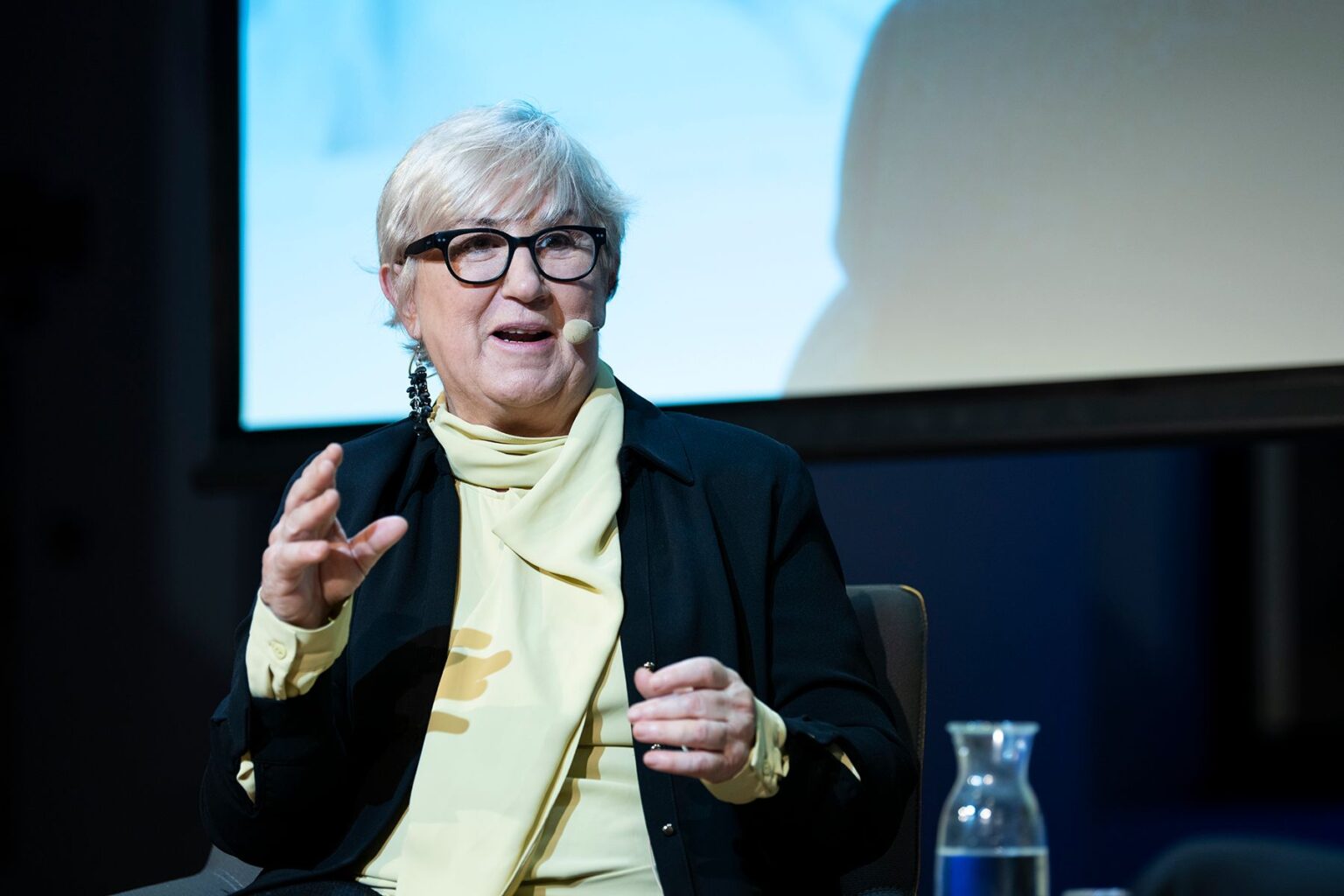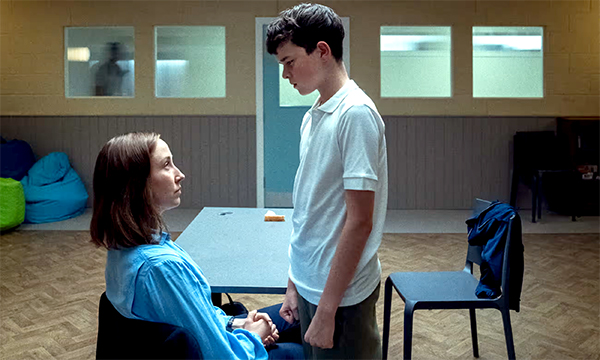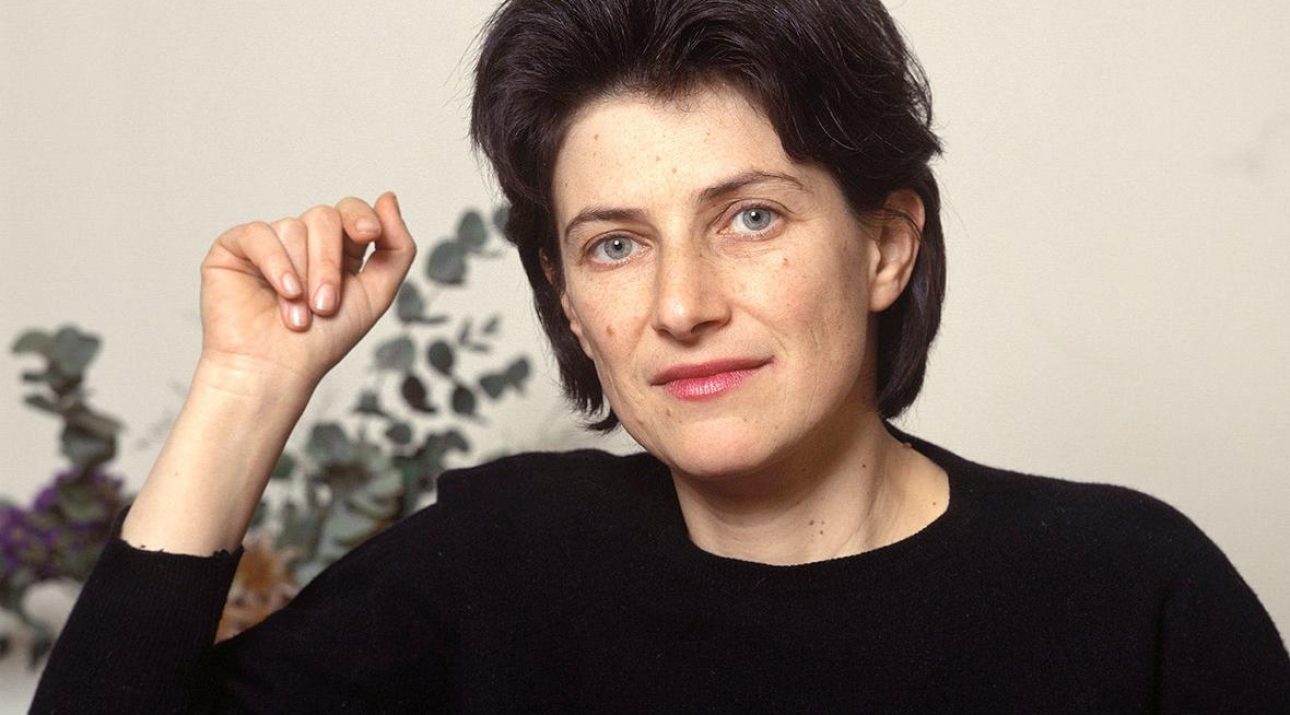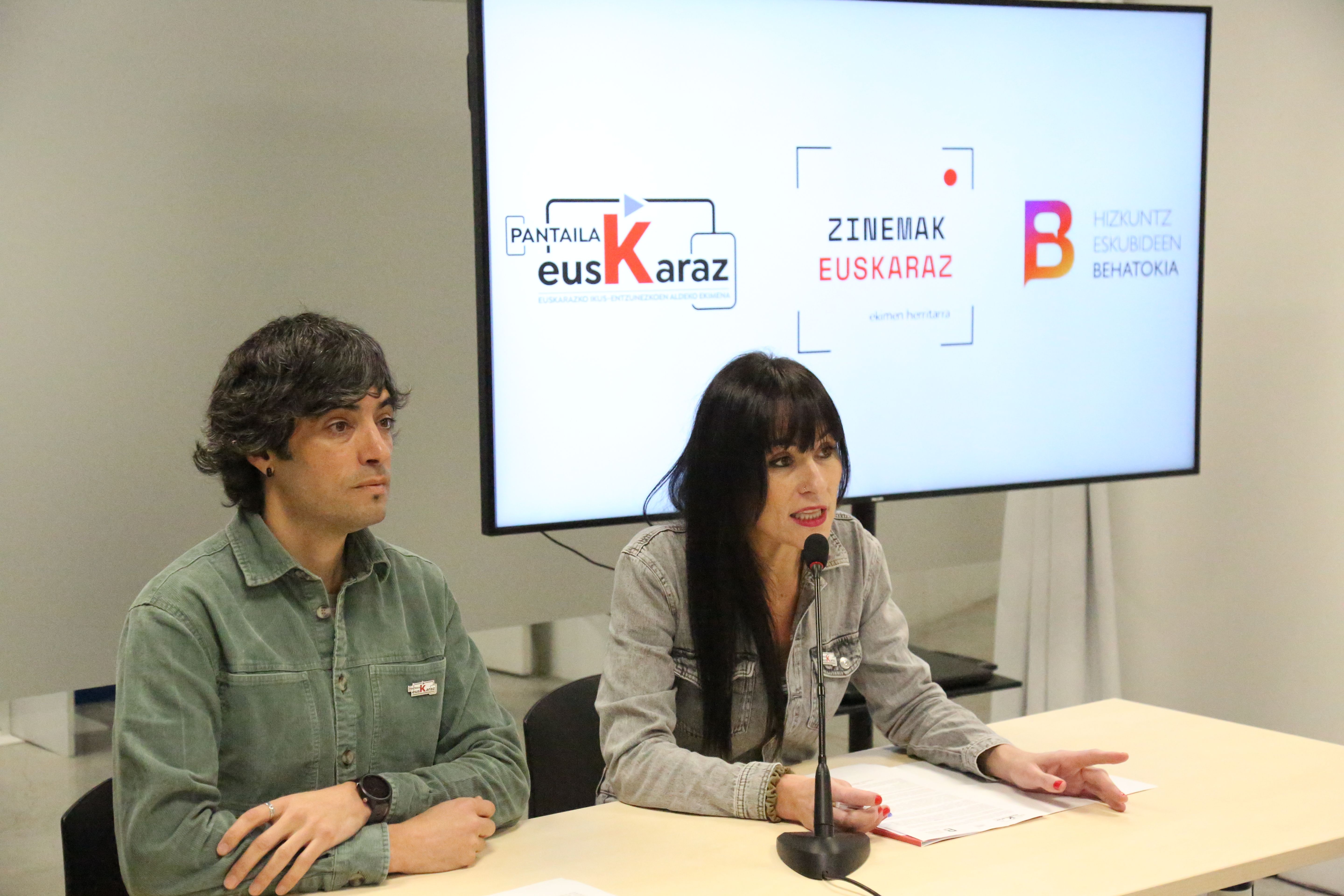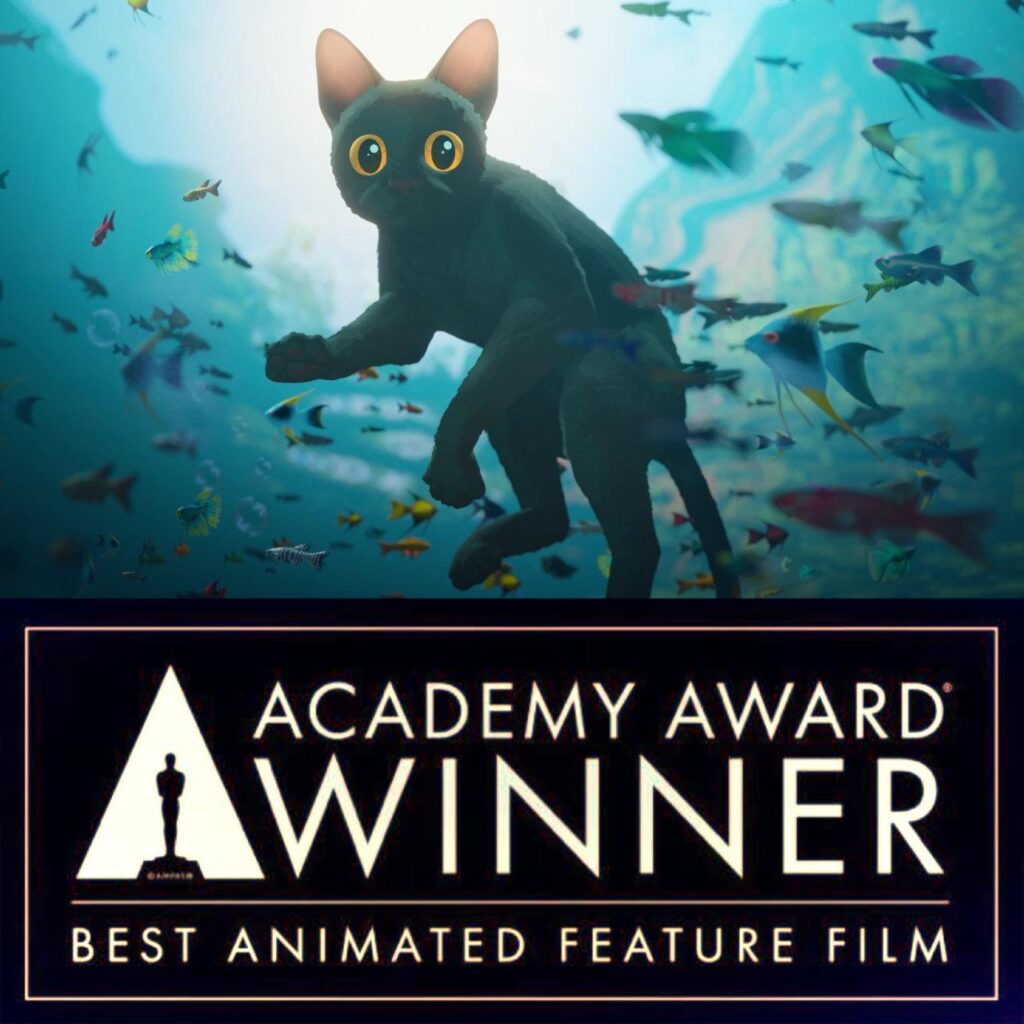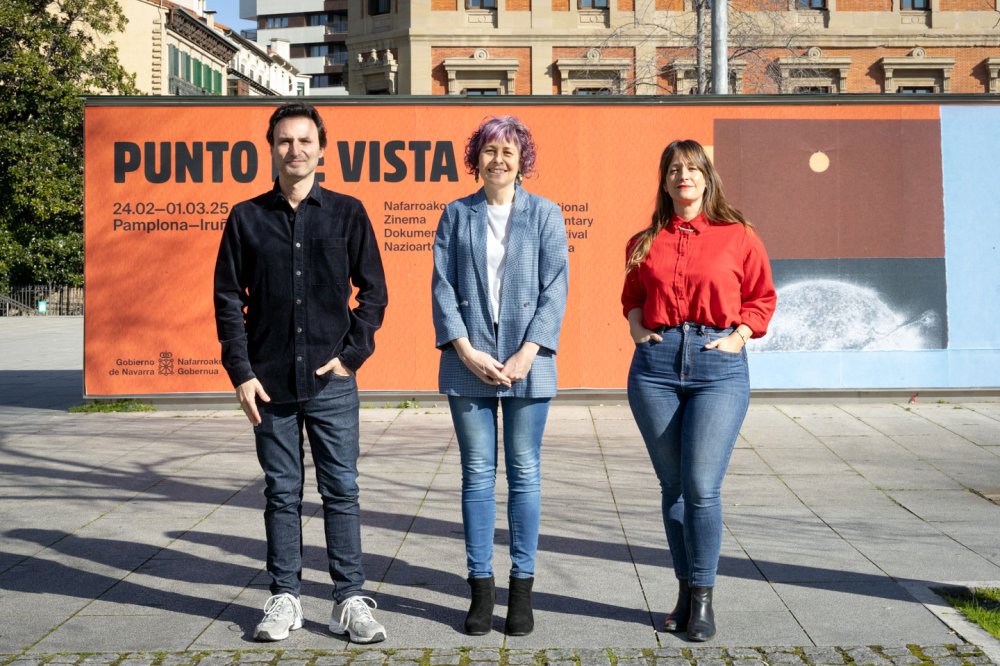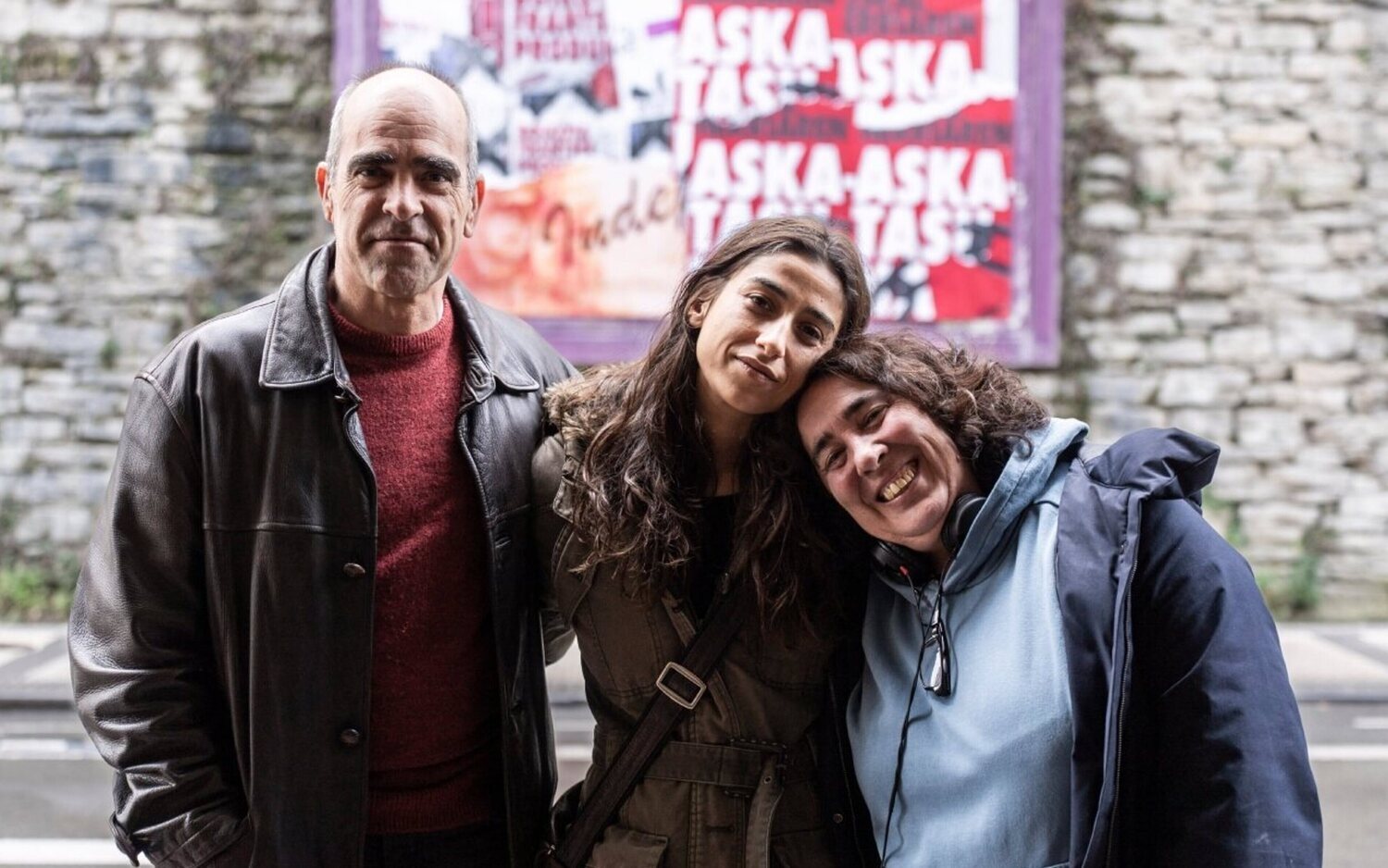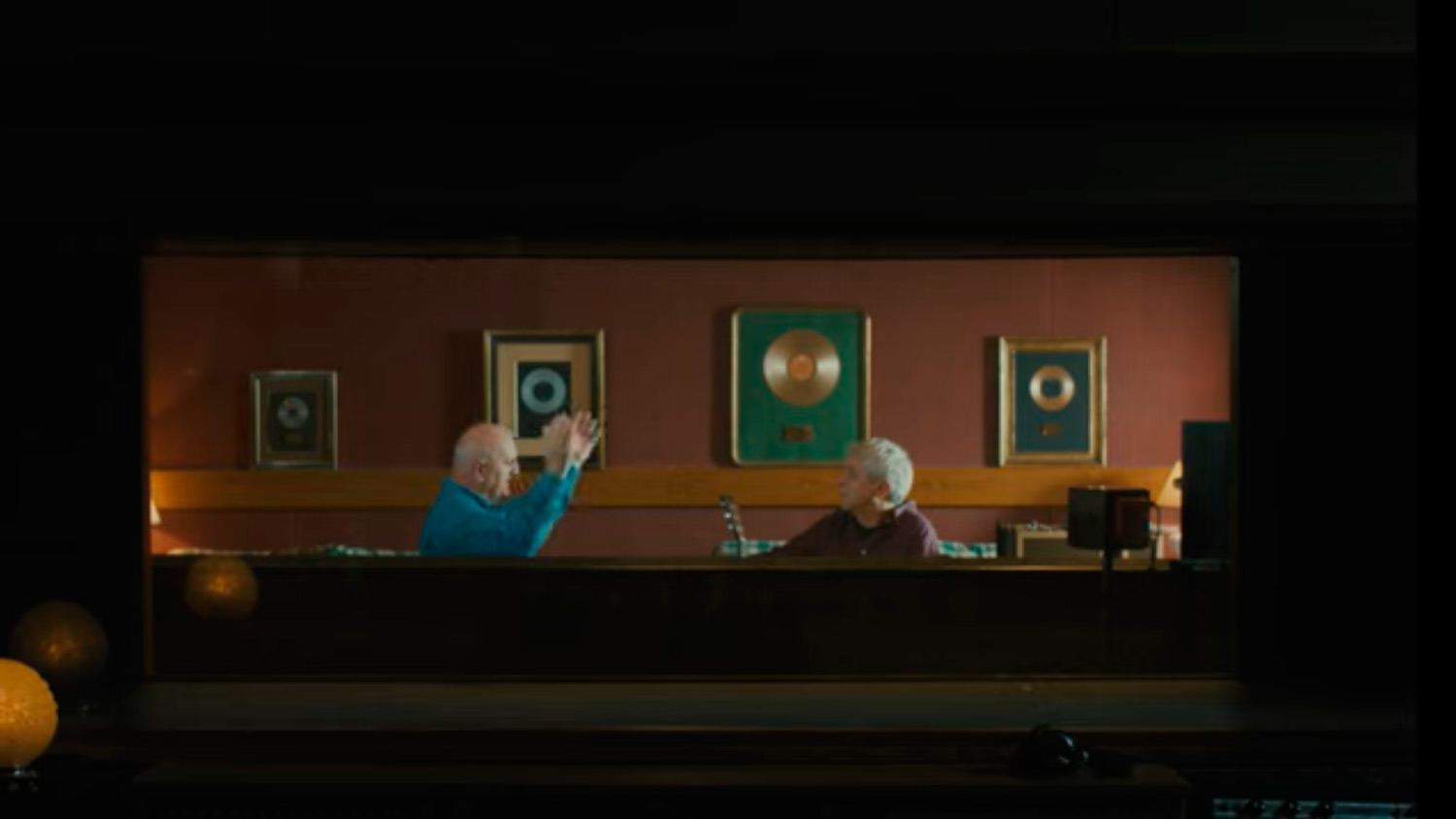"It's a provocation to lead people the way you want"
- The actress Josean Bengoetxea (San Sebastián, 1964) has had a good time. Not to mention television and theatre, he has played a leading role in the cinema since the beautiful performance of the gay farmer in Ander: In Camera obscura, in Telmo Esnal’s Happy New Year, Grandma! and soon, in the comedy Los tontos y los estúpidos.
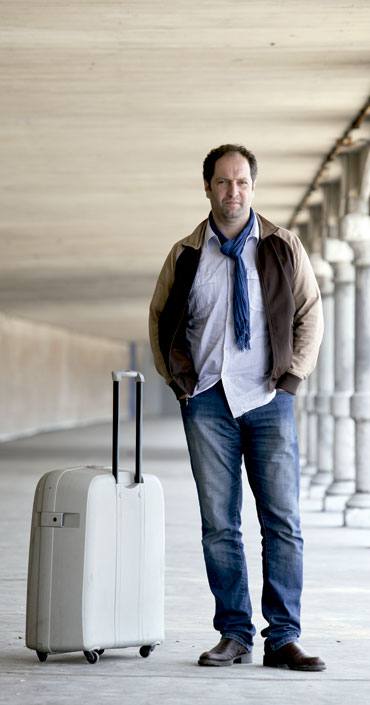
The protagonists are adapting to you lately, but you've done a lot of secondary characters before. Is it very different?
The protagonist’s work is much more intense, laborious, but at the time of preparation there is no difference, the challenge is the same for me: they are characters that you have to give life to and you receive them with the same love and passion.
You dedicate yourself to theater, numerous series and cinema. Is it easy to combine the three areas?
What attracts us the most to the actors is the improvised work and the improvised work is given to you by the theater, because you have the spectator there and the whole process is momentary: take the character, throw it away and see the response of the spectator; for us that is the most complete. I would dare say that nothing else in the art world has that magic. In audiovisuals, there is a big difference from cinema to television. Cinema has always attracted me a lot and I would say that most of us are film lovers, who has never dreamed of a film, of being inside, of being a character? But I was also afraid because all that freedom and space that cinema, theater and stage give you, limits you to the planetariums. Then I realized that the basis is to adapt to each technique and each area, but the work is the same, and I started to enjoy cinema, a world that I’m in love with, crazy: where the camera is, the frame, the sound, the raccord... All those names that frightened me now give me pleasure. And on television, everyone (technicians, scriptwriters, directors, artists...) gives everything, but in reality all the machinery is ready to make churros. The power that television gives you to extract all the potential of each one is limited.
You're in the theater with Polvo. The synopsis is curious: you are two sisters who are becoming men.
The two sisters have been revolutionaries and leftists in their youth, they wanted to go around the world, and today they live without leaving the house, while they eat the dust of the house and with the armor, afraid of what is out there, because they are all enemies. It’s a metaphor for how we live in our country. The external ecosystem, the crisis and everything affects their bodies and little by little they are becoming men. This decadence is reflected and that is why, despite being a comedy, it has a touch of drama, they live immersed in an immense sadness that drives the viewer to reflect. It is quite simple in terms of aesthetics, but it has a point of transgression. Imagine me doing a woman's thing with my body... the transvestite is there.
Does theater give you the freedom to discuss topics and roles that you like?
In recent years I have not stopped making theater, but I have made more cinema, and in my case, as a human being, cinema has enriched me more because I have made very powerful characters: With Ander, for example, I have had the opportunity to know other conditions that are there, but maybe because I didn’t have the opportunity or because I didn’t dare, that I haven’t known before.
For me, in general, interpretation is the richest way to find answers to eternal questions (who we are, where we came from, where we are going...). Often you find more questions than answers, and it’s not bad. The money I need to live—and in addition to giving it to me, interpreting it for me is the opportunity to know the human being as opposed to anything else, to know the virtues and miseries of human beings, to get in touch with other human beings because I deal with very different characters, all of which undoubtedly enriches you as a person.
Read to you: Art is a powerful weapon for provocation and movement of consciences.
Yes, I love the provocation as it creates a revolution. Ideologically, I am in favour of creating revolutions, first of all within myself. I’m the first one who doesn’t want to stand still, I’m always going from here to there, I’m not going to be in the same place for a long time, and that’s what I also look for in my work, the movement: to create a provocation in the viewer because I don’t like how things are. You have to be non-conformist and art allows you to do it. Because, like nothing else, the greatest revolutions occur culturally in all societies. In times of crisis, the greatest restrictions are always made on culture and I think that makes us poor.
If you like acting, you’ve been a member of ETA in several films: Yoyes, Cell 211, all the days are yours.
I’ve also been on TV-movias more times and many times I’ve said no to playing that role. I have great respect for the history of this country and the most recent history is that military-political conflict; that is why I believe that the conflict must be counted, counted, but in depth, and if I do not see that respect for the projects, I do not accept them. I also think that we should tell the story because they have a more polluted point of view in Spain. If you read the script and it impresses you, and you see that there are more questions and not answers, it is a good sign. If I see that they give you answers, something closed... I don’t have anything clear in this world so I can start giving them answers. Television is more likely to do so.
You've also been a cop on a lot of TV shows. Is that a provocation, too?
Yes, I have also been head of the Ministry, which provokes me, because it is a profession that I do not love very much. But it is not necessary to distinguish between good and bad; even under these uniforms there are human beings, although it is often difficult for us to see them. The same goes for the biggest criminal; I’d love to play Hitler, for example. In Der untergang (Sinking) the actor Bruno Ganz gave Hilter an incredible humanity; that is our job, to touch all the areas of the human being, to represent the most diverse characters possible. You have to say no to roles that don’t contribute to you as a human being. Anyway, there’s a character that I’m afraid to represent if I ever get offered it: the pederast. I also have a son... But if not, I enjoy playing the bad guy, because we all have a small prison to overcome certain limits, and through interpretation you have that opportunity.
To what extent have you been conditioned by the physical? You’ve played very different roles and it doesn’t seem like you’ve been hooked.
To hear such things is rewarding, because you always have the idea that you do similar things, and in some places they tell you that you have the physical to make some specific characters, the accent... and having this idea in mind limits us a lot as an actor, but even if I don’t have the physical to do the galician, I have a wide scope to act and it is true that I have made different characters.
Happy New Year at the Cinema, Grandma! A black comedy about Alzheimer’s. It will not be easy to represent a role that is comical but at the same time profound and with dramatic nuances...
No, it's not easy, but I really like stories like this when humor is mixed with drama or tragedy. Many times you don’t know where the border is and that is also a provocation. It’s a provocation to take people the way you want: come with me, now you’re laughing, but follow me and I’ll show you the other side of life... Technically it has its difficulties and that also attracts me a lot. The director guides you, gives you directions to go straight, but you're driving the car yourself. On New Year’s Eve we have emptied ourselves, the whole team, and we need a few days to appreciate what we have done, but it has been very intense and I have no doubt that it will be a film that will give something to say.
With Ander you have received numerous awards for the best actor, representing the role of the farmer who discovers his sexuality. How was it to play Ander?
When I read the script I saw that there were already very powerful images and that created a small revolution inside me; the need to undress myself, not only physically, gave me a little bit of fear. But I was impressed by the love with which the script is written; I rejected prejudices, immersed myself in the story and fell in love with this suffering character.
I see the farm in the film as a metaphor for the village: the one with the windows closed, because we fear the outside, and the one that opens them at the end. It is true that this country, which I love so much, sometimes suffocates me; what is the choice: to leave or to start opening those windows? To enrich the people themselves, it is important to open the doors to the world, as the film’s farm does: to other sexual conditions, to immigrants, to new family models, to women’s freedom...
In this sense, you have said that the fact that the director of Ander (Roberto Castón from Galicia) was not Basque helped to give a more open, less inconsistent look.
We need to talk about our issues, but it’s also important to have outside help to get away from time to time, to take perspective; it’s healthy. Castón is not Basque but he has a familiar rural world and is a person of great sensitivity, who knows how to see without prejudice. We don’t see it often because we have pre-established opinions.
The film had distribution problems from the beginning. Castón complains that there are two main factors behind it: the subject (homosexuality) and the language (Basque). Do you think so too, or was market policy the culprit?
Everything has an impact: the markets, the languages, the themes, the style of the film itself, the fact that it’s a story set on the farm, the bad luck... Today we don’t care too much about this because it’s been seen outside of here, it has been rewarded, many who have had the opportunity to see it have been impressed... The goal was, in principle, to shake the consciences a little and it has succeeded in many cases. We received an e-mail from a boy, for example, very excited, telling us that the movie changed his life. That’s why Andy has achieved his goal.
Here’s another job with Roberto Castón:I feel guilty about the short film. And you'll be filming The Fools and the Strangers with him in the Basque Country soon. You get along well together.
Yes, she says I’m her muse, and I’m crazy about her scripts, her sensitivity and her ability to tell stories. I’ve had Zientoka as director and the way I respect the director’s work I like him to respect mine because the actor is the one who knows the character best and the director also likes to have the humility that I have. Collaboration and mutual knowledge can be the key, and in this sense I have had good experiences in recent years.
With the short film Sintonia by José Mari Goenaga you also received several awards for best actor. In both films, loneliness and our fear of loneliness are very present. Is it hard to imagine loneliness?
Loneliness and the feeling of guilt that we carry around are always present in Castón’s filmography. And as for what you're saying, maybe I have the facility to represent characters who want to get out of solitude, because until recently I've always tried to get out of solitude. I’ve known this place of loneliness well and that’s why I understand characters like that. I have always lived alone and have lived only the most magical and intimate moments of my childhood and youth. Today, I love my loneliness very much and I think that this desire to get out of solitude is a weakness, it is a virtue to know how to live alone, but it scares us because we have to live with all our ghosts and monsters. We live the worst moments at night, rolling around in bed, if we're alone...
Fernando Bengoetxea is said to be the heir to the famous bertsolari and man of the square, Pernando Amezketarra!
Yes, I had heard that in the family, I was curious and went to the seminary to form the family tree. When I managed to do everything, I saw that yes, I am the son, the son, the son... on the right path. The people around me tell me that this is where I get the outings that I usually have, but I have nothing of bertsolari, what are we going to do to it?
No other land dokumentalaren zuzendari Hamdan Ballal kolono sionistek jipoitu zuten astelehenean bere herrian, beste hainbat palestinarrekin batera, eta Israelgo militarrek eraman zuten atxilo ondoren. Astarte goizean askatu dute.
Donostiako Tabakaleran, beste urte batez, hitza eta irudia elkar nahasi eta lotu dituzte Zinea eta literatura jardunaldietan. Aurten, Chantal Akerman zinegile belgikarraren obra izan dute aztergai; haren film bana hautatu eta aztertu dute Itxaro Bordak, Karmele Jaiok eta Danele... [+]
35 film aurkeztu dira lehiaketara eta zortzi aukeratu dituzte ikusgai egoteko Euskal Herriko 51 udalerritan. Euskarazko lanak egiten dituzten sortzaileak eta haiek ekoitzitako film laburrak ezagutaraztea da helburua. Taupa mugimenduak antolatzen du ekimena.
Pantailak Euskarazek eta Hizkuntz Eskubideen Behatokiak aurkeztu dituzte datu "kezkagarriak". Euskaraz eskaini diren estreinaldi kopurua ez dela %1,6ra iritsi ondorioztatu dute. Erakunde publikoei eskatu diete "herritar guztien hizkuntza eskubideak" zinemetan ere... [+]
Geroz eta ekoizpen gehiagok baliatzen dituzte teknologia berriak, izan plano orokor eta jendetsuak figurante bidez egitea aurrezteko, izan efektu bereziak are azkarrago egiteko. Azken urtean, dena den, Euskal Herriko zine-aretoak gehien bete dituztenetako bi pelikulek adimen... [+]
Otsailaren 24tik eta martxoaren 1era bitartean, astebetez 60 lan proiektatuko dituzte Punto de Vista zinema dokumentalaren jaialdian. Hamar film luze eta zazpi labur lehiatuko dira Sail Ofizialean; tartean mundu mailako lau estreinaldi eta Maddi Barber eta Marina Lameiro... [+]
A conference for architects has just been held in Madrid to discuss the crisis of the professional architect. They have distinguished the traditional and contemporary way of being an architect. What is traditional? From the epic architect who appears in The Brutalist, where... [+]
Itoiz, udako sesioak filma estreinatu dute zinema aretoetan. Juan Carlos Perez taldekidearen hitz eta doinuak biltzen ditu Larraitz Zuazo, Zuri Goikoetxea eta Ainhoa Andrakaren filmak. Haiekin mintzatu gara Metropoli Foralean.











